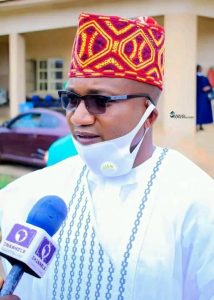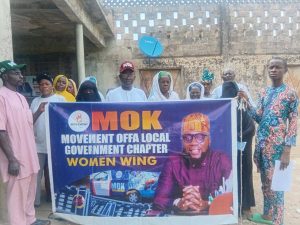ÌRAN ÒJÉ AND SACREDNESS OF DOG AND SPARROW
Have you heard the proverb, “Òun to ń bẹ lẹ́yìn Ọ̀ffà, ó ju Òjè (what’s behind Ọ̀ffà was more than Òjè)? Reason behind this was that in ancient times Ọ̀ffà was considered the most distanced Yorùbá place (probably from Ọyọ Ilé). However, Olú Òjè was still behind it (further).
OLÚ ÒJÉ was amongst ancient towns which had gone into extinction. It was situated beside Ọffà, in Ibọlọ Providence of Ọyọ Empire.
Immigrants of the ancient OLÚ ÒJÉ had highest concentration ÌPÈTUMODÙ. And Oríkì Olú Òjé is entwined in OGBÓMOṢỌ́’s. Other people of this Ancestry who deflected from Oje are scattered all over Yorùbá lands.
Stories on this can be arranged thus: there was once a man in Ilé Ìfẹ́ named Osolu. He had 3 male children; Adeori, ‘Layimese’ and one other whose name was subtled. Adeori was en-titled Onpétu (he who killed antelope) and his second was named Layimese courtesy of his allegedly arrow shot at another Antelope too, but the game escaped with the arrow. Probably considered and named ‘Layimese’ to signify his misluck. ‘Layimese’ is translated as Ọlá-yí-mo-ṣẹ (Luck smiled on me not). Layimese Apẹjoyè (he who bagged chieftancy title eventually). 1
Adeori is historically described as a shortish, drunkard, disciplinarian, polygynist, vituperator and stringent. Adeori was also nicknamed “Ásàala-ìjà” – he who warned before fights, as he was said to pre-warned his wives before they (wives) took to fights.
WHAT WAS THE LOCATION OF THE ANCIENT ÒJÉ?
There are two indicators as to where Ìlú Òjé used to be.
1. Ọ̀ffà, which Ìlú Òjé is said to behind was obviously not the present-day’s. (Settlements bearing Ọ̀ffà had gotten shifted so many times and to extremely different locations). Because the present Ọ̀ffà (short of Ọ̀ffà Àrínlolú) has made Yorùbá towns which are much more further than it.
If we are to follow the proverb strictly in deduction of its location, it would be said that the two Ọ̀ffà which match the “further” description were Ọ̀ffà-Irese (once existed after Igbaja, the ancestral home of Irese, from which the Ọ̀ffà got its prefix; Ọ̀ffà Irese) and Ọffà Ora, in the land of Nupe. It is only for these two the logicality of the proverb works.
2. If the legend of Three Stone (mentioned in Number 32 below) is true, then Ìlú Òjé was at the further end of Ìgbàja (ancestral home of Irese) in the present-day Ìfẹ́lodun Local Government of Kwara state. It shared boundaries with the Ẹrin and Oko.
HOW THE NAME OLÚ ÒJÉ COME TO BE
A mythological story is told of how they come by the name Olú Òjé (he who owns Òjé). Òjé is the liquid iron. After fire baptism, Òjé is used to forge iron utensils. (Òjé was purely the work of Ẹrin Ancestry. Ẹrin m’Òjé – Ẹrin knows Òjé, because the art is the centre of the world to Ẹlẹrin The story will be treated in due course.)
The story is told thus:
An ackee tree (Igi Ìsìn) refused to bring forth tree after it had reached full growth, the Onpetu approached the ackee tree and asked why it refused to bear fruit, it simply reply it’s because of Parrots, Sparrow and the likes of fruit trees-eating birds. The king replied that it should bear fruits if it could. The tree bore 3 fruits thereafter, but they didn’t open. The King approached it again and asked why it refused to open and got same reply. And when it eventually opened, instead of ribilis, the trio contained guinea corn, gold and Òjé. Two of these were distributed amongst their neighbours, probably chief neighbours then; they gave gold to Ọbà Ancestry (majorly now in Ọbà, Ọsun State), guinea corn was given to Irẹsa (known for palm oil) and they kept Òjé for themselves. Hence, become Olú Òjé. ORÍKÌ lines as being related:
Ọmọ Ìsìn kan, Ísín kan èyí tí ń bẹ lóde Òjé Ilé
(There was once an ancient ackee tree in Òjé Ilé)
Ìsìn kọ, Ìsìn ó sò
(Which refused to bear fruits)
Ọba Ólòjé wá ní, Ìsìn kilósè tọ́ọ lè sò?
(The king inquired as to why it refused to bear fruit)
Ísín ni, nítorí Ẹga, nítorí Orofo, nítorí Wọsọ-Wọsọ olórí ẹiyẹ
(It replied it’s because of Parrots, Sparrow and the likes of fruit trees-eating birds)
Olú Òjé ni, Ìsìn boo lè sò kóo so
( The king replied that it should bear fruits if it could)
Ìsìn so tán, Ìsìn so mẹta péré
(Ackee bore fruits afterwards, but did not open)
Ọba ní kìnnì ṣe tóò lè la
(The king inquired as to why it refused to open)
Ísín ni, nítorí Ẹga, nítorí Orofo, nítorí Wọsọ-Wọsọ olórí ẹiyẹ
(It replied it’s because of Parrots, Sparrow and the likes of fruit trees-eating birds)
Olú Òjé ni, Ìsìn boo lè la kóo la
( The king replied that it should open if it could)
Ìsìn là tán,
(When it opened)
Òun mẹta ọ̀tọ̀ọ̀tọ̀ ni bàbá yín bá nínú Ìsìn ọ̀un níjọ́ yẹn
(Three things were found therein, instead of ribilis)
Àkọ́kọ́ ni wọn ba ìdẹ
(They found gold in the first)
Èkejì ni wọn ba bàaba
(In the second they found guinea corn)
Ẹkẹta ni wọn ba òjé
(They found liquid iron)
Èyí tí wọn ba ìdẹ ni wọn fún bàbá wọn Olódi Mọdẹ Irẹsá
(The gold was given to progenitors of Irẹsá)
Èyí tí wọn ba bàaba ni wọn fún bàbá wọn Ọlọbà Ọbẹ̀ẹ̀du
(The guinea corn was given to progenitors of Ọbà)
Ọmọ ayi kínní bọ ọmọ lẹ́nu, Ọbáńjà ọmọ àṣẹ lókè 2
(Those who used hands to foam knots, to seal children’s mouths) to silent them)
Èyí tí wọn ba òjé ni bàbá wọn mú pamọ
(Their progenitors kept òjé for themselves)
Làwọn náà fi ń jẹ Olòjé, ọmọ arọtiwẹ bí òjò…….
(Thus christened as Olòjé; owners of Òjé)
SACREDNESS OF DOG AND SPARROW
Two animals are totems of this Ancestry. Ẹiyẹ Ẹgà (Sparrow) and Ajá (Dog). Both were held sacredized, their meats inedible.
On Sparrow: it is both totem and taboo of Olú Òjé. It is considered inedible for any Òjé descendant, because sparrows did them an unforgetable favour.
Stories hand down say there used to be a large tree in the middle of the ancient town of Òjé where Sparrow did conversed. One day, the enemies at midnight to attack the residents. Midnight was probably chosen so it could be a surprise attack. But more surprise was that the sparrows started to hoot derisively so much that it awoken the people, they rose against enemies and conquered them.
Òjé people thereafter considered sparrows as their benefactors and held their meat sacred.
Ẹla m’oko mi ò gbọ́dọ̀ jẹ́ Ẹgà
(Oh my goodness, I mustn’t eat Sparrow)…..
On dog: one of Onpètu’s progenitors once went hunting with his dog. He died in the forest during the expedition. His dog was said to have called nearest townpeople’s attention to its master’s mortal end. Those people killed the dog and used its skin, together with already-killed antelope and cocoyam leaves as shroud to cover his remains and buried it in Òjé. Thus, they added it to their oríkì:
Tí bàbá yín bá dá aláran lógún-lógún, kii se aṣọ amupẹkun,
(If your progenitors had clothes made from velvet materials in its twenties, they are never used as their burial clothes [shroud])
Kin wá ní aṣọ amupẹkun?
(What is used as shroud then?)
Awọ ajá ni aṣọ amupẹkun
(It is dog’s skin)
ORÍKÌ OLÚ ÒJÉ
S’oku d’olu, ọmọ arọtiwẹ bí òjò 3
(They who made fuss off death, those who bathed with liquor, as if it’s rain)
Tí bàbá yín bá dá aláran lógún-lógún, kii se aṣọ amupẹkun,
(If your progenitors had velvets in its twenties, they are never used as their burial clothes [shroud])
Kin wá ní aṣọ amupẹkun?
(What is used as shroud then?)
Awọ ajá ni aṣọ amupẹkun
(It is dog’s skin)
Ọmọ Layimese, ọmọ ar’ìdí ògo lógun 4
(Descendants of Layimese, they who see the end of glory of warriors on the battlefield)
Mo ròyìn ogún Báárà fún àgbẹ̀ 5
(Í give lucid reportage of Báárà to farmers)
J’ajá j’ajà wàá J’ajá
(Dog eaters, that call upon others to do same)
Òjé, ṣébí ẹ ní ẹ̀ẹ́ ni jẹ ajá mọn?
(Òjé, didn’t you said that you would not eat dog anymore?)
Ọj’ajá ni àá má pé yín tó bá di ọ̀la
(Dog eaters you shall be called henceforth)
Ọmọ ar’eyín j’ajá Ogun ṣẹẹ́ tún de?
(You who eat dog – god of Iron’s favourite meat – here you come?)
S’Oku d’olu, ọmọ arọtiwẹ bí òjò
(They who made fuss off death, those who bathed in alcohol)
Ẹga tú pẹ́rẹ̀ jẹ oko ẹnìkan nà mu
(Sparrow fled in convergence to feast consistently on someone’s farm)
S’Oku d’olu, ọmọ arọtiwẹ bí òjò
(They who made fuss off death, those who bathed in alcohol)
Àní, mo torí òye mo lọ ìlú yin
(I went to your place to bag chieftancy title)
Awọ ajá lẹ fún mi jẹ; ń ó róye ìbẹ jẹ
(You rather gave me dog’s skin, instead of chieftancy title)
Ọmọ bù’ni-bù’ni a b’èébú wọntí-wọntí ni ara
(He who poured excessive vituperatives though himself was flawed)
Dò’ní-dò’ní ab’ìdí mọn ránin-mọn ránin
(Good player on bed; with sweet pendulum below)
Rïn’ni-rín’ni ab’ẹ́ẹrin pò-ń-yẹkẹ pò-ń-yẹkẹ
(That excessive laughing buffoon)
Gbùngbùn lẹ́nu abùni
(Err shaped were vituperatory mouths)
Ọmọ ẹ̀yìn tó ti pọn lóde Òjé Ilé
(There was once ripe bunch of palm kernels in Òjé Ilé)
Ọkùnrin ó gbọ́dọ̀ kọ̀; obìnrin ó gbọ́dọ̀ kọ
(Neither male nor female must hack it)
Eégún ni yio kọ ẹyin náà nínú igbó Iyèmétu
(It’s a mosquerade that would hack it in the sacred forest of Iyèmétu)
Pààkà ni yóò ṣe ẹyin náà
(It would be cooked by Pààkà)
Ìyálóde ni yóò fọ ẹyin naa wálé 6
(It’s Ìyálóde that would pour the palm oil made therein home)
*********************************
Olú Óje ni wọ́n, ọmọ ar’ọti wẹ bí òjò…..
(They are also Olú Óje, those who bath with liquor, as if it’s rain)
Mo ríbà bàbà mi,
(I salute my father)
A á f’Osolu joyè lónìí 7
(We enthrone Osolu today)
A á tún f’Osolu joyè lọ́la
(We would enthrone Osolu tomorrow)
Ọmọ Osolu Gbàdàmu Ẹrú 8
(Children of Osolu, the sword holder)
Àfijú ọjà lóde Òjé Ilé,
(One distinct market in Òjé)
Àfijú ẹiyẹ tíì mú’mi lágbáda
(One distinct bird that drank from large frying pan)
Olú Igbo rerere 9
(Dwellers of furthermost part of the savanna)
Oro gangan làá fohùn odò fún odò
(We give the stream its due while standing)
L’oro gangan làá fohùn odo fún odo
(And do the same to mortal)
Oro gangan làá tọ s’odò l’ Onpétu
(We urinated into the river in Onpétu)
Ẹ ẹ ríi?
(Didn’t you see?)
Ẹ̀kọ́rọ ilé àbààgbalẹru, ẹ̀là mo kò ń ó gbọ́dọ̀ j’Ẹga
(One phenomenon that frighten elders, oh my goodness I must not eat sparrow)
Ọmọ ‘Wìnròunbi
(Descendants of Wìnròunbi)
Ọmọ ‘Wìndunjù’yọ̀ ọmọ Ìwìnkúnle jọjọ 10
(Descendants of Wìndunjù’yọ̀, gnomes fulled House to the brims)
Ọmọ sakiti wọnin-wọnin, ọmọ Ilásá ó gb’àálọ̀ 11
(Ilásá soup didn’t hear pleas)
Ọmọ ósonù ilé kò gb’àálọ̀ 12
(Melancholies hardly heard pleas)
Ọmọ Ilásá ó bomi tútù rẹ
(Ilásá soup made no relationship with cold water)
Olú Òjé, èémí l’olomi tútù yí o fi Ilásá ṣe? 13
(Olú Òjé, what would cold water do to Ilásá?)
Ọmọ ìdá gọgọ
(Children of a pointed sword)
Wọn sebi ìdákìdá ni;
(They thought it was anyhow sword)
Wọn ò mọ pe ìdá tó bá Onpétu tan ni
(They didn’t know it had relation with Onpétu)
Kíkan mọ ọmọ nìdí ọwẹ 14
(That he beat children with, at work)
*********************************
Ọmọ àkàsálórí-ẹ-to-d’ọdẹ-erìn 15
(They who carried Asá while going out on hunting elephants)
Ògún lẹ kúkú bọ, ọmọ kúndaru
(You were avid worshippers of Ògún [god of iron], descendants of a shortish person)
Ọmọ ar’ìdí ògo lógun
(Those who see the end of glory of warriors on the battlefield)
Ọkàká mo jobi mi yàngi-yàngi 16
(Consistent kolanut eater)
Obìnrin j’òwú ọ̀rẹ́rẹ́ 17
(women are full of needless or unnecessary jealous)
Nílé Olú Òjé, ọmọ Ìwìnròunbi
(In Òjé, descendants of Ìwìnròunbi)
Eeja’nù Ilé Òjé wọn wá san ni, àbí ó sàn? 18
(They asked, if hot temper paid or not?)
Ọmọ Alàáya kan Itaala Itaala 19
Owners of Àáya)
Ọmọ Alààya kan Itoolo Itoolo
Ọmọ Akẹiyẹwálé ,ẹẹ kú ooo
(Greetings, descendants of he who carried birds enmasse to the river)
Olú Òjé k’ẹiyẹ wa’do, ọmọ àfinjú ẹiyẹ tíì múmi lágbáda
(Olú Òjé carried birds to the stream, descendants of birds that drank from big frying pan)
Ak’ẹiyẹwa’do, ọmọ afọjọsọwẹ 20
(Carriers of birds, they who stipulated work’s day)
Tí ń bá nlọ ilé àwọn bàbà mi, mo mọn ilé wọn
(If I am going to my father’s home, I know there)
Óòre méjì l’Ẹga 21
(Sparrow did two favours)
Nígbà tí Ìyá Olú Òjé ku,
(When Olú Òjé’s mother died)
Wọn ò r’èéyàn ti o lọ soko lọ rèé bo àgbàdo
(There was no volunteer to go to the farm and harvest maize)
Ní wọn ba rán Ẹga pé kò lọ soko lọ rèé bo àgbàdo
(They then sent Sparrow)
Ẹga lọ soko lọ rèé bo àgbàdo, ó bo yangàn 22
(Sparrow went to the farm and harvested maize)
Ojo ń rọ wẹliwẹli, ojo pá Ẹga bọ
(Rain fell on the Sparrow)
L’Olú Òjé bá bọ sílè lo bá mú aṣọ Òsun lo fi fun
(Upon return, Olú Òjé clothed sparrow in multiple clothes)
L’oba fi bora;
(And wrapped it therein)
Ẹga kìí wọ aṣọ Òsun tẹ́lẹ̀
(Sparrow didn’t wear such clothes before)
Ọmọ l’apẹ a bọ 23
(They who fed children from apẹ)
Ẹlẹ́dẹ̀ yọ níjú; Ajá yọ yọ́yọ́ l’Òjé 24
(As bush pigs had freedom in the bush, so were dogs in Òjé)
Ògbólógbòó Ajá, òun nii sún ni ahòrò alahòrò tí alahòrò ó béèrè
(Dog slept in some other people’s homestead without query)
Ọmọ iya mẹta sun; wọn ò mọ inú ara wọn
(Three siblings slept together, but didn’t trust one another)
“Sobẹ̀, mú iyọ̀ wá”
(“Sobẹ̀, bring salt”)
“Ṣàdé, mú èpò wá”
(“Ṣàdé, bring palm oil”)
“Làálà, b’o ó tètè wá, a o j’ẹ̀kọ́ jìnnà”
(“Làálà, the more you tarry, the more we eat corn meal”)
Omi tóóró ajá ń jìnnà nílé Ajigosoro 25
Tí ń bá ń lọ Ilé wa lóde Òjé Onpétu
(If I am to praise you, Òjé)
Ọmọ ẹni tí ó gbọn, ọmọ ẹni tí ó mọnra
(The unwise and unintelligent)
Wọn a ní, àwọn torí ẹyin bá wọn r’Òjé
(They who claimed they went to Òjé for chieftancy title)
Nílé Solugbadè
(In Solugbadè’s home)
Ìgbátí mo mú inú ṣe ọgbọ́n, mo mú ikùn mo ṣe ìmọ̀ràn
(Upon my lucid meditation)
Èmi torí òye bá wọn r’Òjé nílé Solugbadè
(I went to Òjé for chieftancy title)
Mo gbàdé bo orí
(I put a crown on the head)
Mo sì róye ilé wa jẹ
(And I bagged the title)
Ẹyin pọn l’Òjé
(There was a ripe bunch of palm kernels in Òjé)
Obìnrin ó gbọ́dọ̀ kọ
(Neither females must not hack it)
Nílé wá
(In our house)
Ọkùnrin ó gbọ́dọ̀ w’ẹku 25B
(Nor males must not enter Ẹkù)
Àbọ̀de Ògún Kìíji [Kìríji] 25C
(Upon return from Kìríji war)
Òun l’Obìnrin pá’gbà lo p’àáké
(And women engaged in hard labour)
T’Ọkùnrin sì w’ẹku lójú mi
(And males bathed corpses in my presence)
Mo m’ẹni tó sì èpò ẹyin náà nígbàhun…… 26
(I knew who came home with the ripe bunch of palm kernels)
*******************************************
Ara Òjé, ọmọ oko méjì
(People of Òjé, with two farms)
Ọmọ ap’ajá-fún-wọn-làwọjẹ
(Those who killed dogs but gave give away the skins)
Ẹla moko, n ó gbọ́dọ̀ j’Ẹga
(I must not eat sparrow)
Ọmọ Layimese, apẹjoye 27
(Descendants of Layimese the latter-day chief)
Ara wọin, Ilásá ó gbáàrọ
(Ilásá soup didn’t hear pleas)
Osonu Ilé wọn ò gbáàrọ
(Melancholies hardly heard pleas)
Ọmọ arọtiwẹ, asaalọ̀ ìjà
(Those who bath with liquor, as if it’s rain, pre-fight warner)
Bẹẹni Fijabi ni bàbá Oyèwusi
(Yes, Fijabi fathered Oyèwusi)
Oyèwusi ọmọ Fijabiadé
(Oyèwusi was Fijabiadé’s son)
Ará Òjé l’Onpétu
(People of Òjé township)
Ọtí dá l’Òjé
(Whether there was a scarcity of alcohol in Òjé)
Bàbá wọn ò gb’ọtí mu
(Their fathers would not beg anyone for alcohol)
[Ọtí] Kò dá l’Òjé
(Or, there was a surplus of alcohol in Òjé)
Bàbá wọn ò gb’ọtí mu
(Their fathers would not beg anyone for alcohol)
Ọmọ ọtí gbélé ahun ọtí kan
(Alcohol become stale in a stingy man’s house)
Ọmọ ọtí Ìgbàjẹ a pooyi-ranin ranin 28
Ẹni tí ń bá tọ odò latọju
(He whoever that follow waterways too long [or much])
Tí kò sì wọ, a bá Olúwẹri pàdé
(Would meet with the mermaid if he would not ceased)
Arọtiwẹ, àsálà ija
(Those who bath with liquor, as if it’s rain, pre-fight warner)
Àwọn Olú Òjé nii jẹ báun
(Sọ were Olú Òjé called)
Tí wọn ba tún pe Olú Òjé l’Onpétu 29
(They could also be called Onpétu)
Ọmọ Layimese, Àpẹjoyè torí òye laar’Òjé
(He who bagged chieftancy title eventually)
Torí adé làá lọ rèé d’odò ni pópó Iyèmétu
(We went out fishing for chieftancy title in Iyèmétu)
A r’adé gbé bọ’rí
(We eventually worn the crown)
A sì tún róye jẹ
(And bagged the chieftancy title)
A tún r’ọla se
(And lived affluence with it)
Jingbin jingbin
Soposopo
Sọmbọsọmbọ 30
Òun làá bọ wálé
(So we returned home)
Ọmọ ẹ̀lẹ́burú ọ̀nà Ẹyọ 31
(Descendants of a short-cut to the ancient Ọyọ)
Ọmọ òkúta mẹta ọna Layimese 32
(Descendants of three stones on the way to Layimese)
Ọkan kọ mi lẹsẹ̀ l’àbọ̀ 33
(I stumbled on one)
Ọkan ń ṣe mí ní rọra
(One said sorry)
Ọkan ń ṣe, ìgbà tí ń ó gbọ́n
(One said, when I was unwise)
Nígbatí mi ò mọ ọ̀nà
(When I didn’t know the way)
Kínní mo wà de òde Layimese? 34
(What did I come looking for in the land of Layimese?)
Ní’jọ Òjé bá gor’òkè 35
(The day Olú Òjé ascended or climbed the hill)
Wọn a yọ títí
(They would resolved to felicitations)
Ní’jọ Ọlayimese
(The day descendants of Layimese)
T’o bá gorí odò, 36
(Ascended or climbed the mortal)
Wọn a ní ńṣe ló ṣe
(They would expressed their pities)
Ńṣe ló ṣe làá p’óse,
(Nothing but such expressions)
Ó ṣe, làá p’èdè l’Òjé pápá 37
(Such were the shouts for such occasion [when Òjé expired]…
Òmìni tó kú
Tí àwọn Olú Òjé nù un
(That’s pertained to Òjé Ancestry)
Arọtiwẹ, aṣáála ìjà…….
*******************************************
Ilé l’Òjé òòò….
(Home of Òjé)
Òjé l’Onpétu
(Òjé was Onpétu)
Ọmọ igi kan mi lódò, aṣáála ìjà
(One, ancient tree that touched me)
Ilé ni í j’Òjé
(Òjé was the Home)
Ọjà nii j’Onpétu 38
(Onpétu was the market)
Ọmọ Oko méjì
(Descendants of two farms)
Ẹyin pọn Ilé Òjé
(There was once a ripe bunch of palm fruits in Òjé)
Ṣebí obìnrin ó kọ
(Women must hack the fruits)
Àgbà ọkùnrin ó wẹ’kù
(Matured males must not enter Ẹkù)
Akọpẹ kan tódé Ọ̀yọ́ wá 39
(One Akọpẹ come from Ọyọ)
Odidi ọjọ́ mẹ́rìndínlógún l’ó fi kírì ọkọ ẹyin
(He circumambulated the palm tree plantation for sixteen days)
Tí ó fi kọ’gi
(And wouldn’t hack the palm fruits)
Obìnrin bìnrin 40
(It was a mere woman)
L’ọ gbé ìgbà 41
(That collected the tappers’ climbing rope)
L’o gùn ọpẹ lọ
(And climbed the palm-tree)
Obìnrin náà kọ odidi ẹyin mẹ́fà
(The woman plucked six bunches of palm fruits)
Gbogbo rẹ lo yí bíríbírí
(All were hacked well)
Ẹ́la Òjé ọmọ ó tó l’èjì 42
(Ẹla Òjé, two children were not enough)
Ọtun Ìbíni 43
(Right hand of Ìbíni [Benin])
Ọmọ ẹni tó ko ẹiyẹ wá’dò l’Onpétu
(Children of he who conveyed birds to the river in Onpétu)
Pé kò wá mú’mi
(That they should come and drink away)
Ọmọ kú-ndaru
(Descendants of a shortish person)
Ọmọ ar’ìdí ògo lógún
(They who see to the warriors’ glories on the battlefield)
Ọmọ apárun jẹ́gẹ́dẹ
(Children of a slim, bamboo tree)
Etí igbó Iyèmétu 44
(Beside the sacred Iyèmétu forest)
Ọmọ wòléwòlé wọn kìí gbé sì gidi 45
(Children of public health sanitary officers don’t carry effigies)
Ọmọ sìgidi Ọlátókun
(Children of Ọlátókun’s effigy)
Agbo Ilé Ìyá Nja, ará Kànka 46
(Mother Nja’s ward of Kànka)
Ọmọ Ap’erinyíká 47
Àgbònna pẹ̀lẹ́, Ọba Isuka 48
(Greetings Àgbònna, King of Isuka)
Ọmọ mẹ́ta n’ìyá Ologboja bí 49
(Mother Ologboja gave birth to three children)
Wọn là wọn ò pá Erin fún ayaba
(They vowed to kill an elephant for the queen)
Ọkàn pá Erin, wọn ń jó wọn ń yọ
(One killed the elephant, they were rejoicing)
Ní òde Ọ̀yọ́ Ilé
(In the ancient Ọyọ)
Ọmọ aròyìn báara fún àgbẹ
Òjé l’Onpétu
Ọmọ Lagunadè
Ọmọ Sagunmọ
Ọmọ Ṣáṣára Olúbe
Árá Ajá, ọlọbẹ̀ sakiti
EXPLANATION
1. It is note of worth that the story above is synonymous to Elese (Founder of Ìgbàjá. Ancestry of Ajíbógun), Olomu (Founder of Ọmúpo, Ancestry of Olupo Alaelu) and Ọlọ́ra’s story as related by Poet Ajobièwe. This should be expected for events feats of personae gathered in those days make it deductable that there were undue competitions by few to do some memorable things so as to have names immortalized in the Sand of Time.
2. Ọlọbà Ọbẹ̀ẹ̀du Ancestry, short of Ọbà, has its concentration in Ọbà in present day Ọsun State.
3. S’oku d’olu…They who made fuss off death: in reference to their progenitor’s death mentioned earlier.
– Arọtiwẹ bí òjò – those who bathed with liquor, as if it’s rain) To describe Adeori’s drunkardness.
4. To drive home the point that they were war mongers.
Actually, this was a necessity of the country, dominant powers feasted on the lesser power. Hence, all had to learn arts of war.
5. “Báárà” : probably melon cactus, ‘the round-case plants melon are found in’. Melon is ẹgusi.
6. Igbó Iyèmétu was igbó Ìgbàalẹ (Sacred forest) in Ìlú Òjé
– PÀÀKÀ, head of the mosquerade Cult
– ÌYÁLÓDE, title of head woman of the town. A idiom is composed for the title, “Adape ajẹ ni wọn ń pè ní Ìyálóde (Ìyálóde is merely an euphemistical title for a witch)
7. Osolu was the father of Adeori, the first Olú Òjé
8. Adeori, the first Olú Òjé is said to have a sword which he beat children’s backhand with when loathing at work. He used the blunt side, of course.
9 Thus called – Olú Igbo rerere (Dwellers of furthermost part of the savanna) – because they were living far away from others: “Òun to ń bẹ lẹ́yìn Ọ̀ffà, ó ju Òjè lọ”
10. Both ‘Wìnròunbi and Ìwìnkúnle were ancient names. Both had Ìwìn (spirits) as prefixes. Bastardized, Ìwìnròunbi means “spirits were able to birthed this” and Ìwìn kún Ilé “Spirits full house” they add jọjọ as suffix.
I myself bear Adekunle. There’s also Ọlakunle.
11. Ilásá is a kind of draw soup made from cassava leaves. It goes through same process as Èwedu. The cassava leaves used are Ọmúndu (unmatured leaves).
However, instead of potash used in normal draw Èwedu, Okro, Ọ̀unla Soup soups Ilásá is cooked with Aro Abajẹ, a kind of dye.
Bastardized, “Ilásá does not hear pleas”.
12. Of course, melancholies hardly heard pleas.
13. Just like any other soup draw soup Ilásá is also cooked with hot water.
– “Olú Òjé, èémí l’olomi tútù yí o fi Ilásá ṣe? (Olú Òjé, what would cold water do to Ilásá)” is a kind of idiomatic expression.
14. See number 8 “Kíkan mọ ọmọ nìdí ọwẹ (That he beat children with, at work)”.
Ọwẹ is ambiguously used here, it means work. The context meaning is a situation whereby a farmer asked some other farmers to come help him with farm works. This used to be clearing, making ridges and planting (the last was rare). It is among responsibilities of the ‘host farmer’ to cater for their needs; foods and drinks.
15. Asá is a kind of sickle ancient elephant hunters took with them while going on hunting expeditions.
16. Adeori, the first Olú Òjé was a consistent kolanut eater.
17. A popular idiom.
18. Eeja’nù: Àájanu, Onínú fufú: for short-tempered.
19. Àáya, also called Olúgbě is a specie of monkey.
20. History said, Ìlú Òjé people used to bring Irorẹ bird home to show their children.
Afi ọjọ si ọwẹ: He who stipulated day for Ọwẹ. Ọwẹ is explained in Number 14.
21. “Two favours” one real, one mystical. The former is explained in introductory part.
22. àgbàdo (maize), yangàn (corn)
23. Apẹ is Iron pot . Odu (sometimes called Oru) is clay pot.
24. Being held sacrilegious, dogs were privileged to wander about with humans in Ìlú Òjé.
25. Omi tóóró ajá ń jìnnà nílé Ajigosoro
Omi tóóró is water with which any cooking is done. Here, it’s refered to those with which dogs were cooked in Ìlú Òjé.
25B. Also called Ada, Ẹkù is the noun for place where palm oil is processed, from palm-tree fruits to the actual oil. See ancestry of Irẹsa.
25C. Ogun Kìíji [Kìríji], Kirji War is one of the most popular wars that plaque the Yorùbá in the late 1880s. (Àbọ̀de could also be translated as “sequence to Kìríji”)
26. These lines simply mean everything was in disarray after Kìríji war, for naturally activities in Ẹkù were purely meant for women, while men were Akọpẹ (noun for people who hacked bunches of palm from its trees).
27. Read the introductory part.
28. The meaning of this line is unclear.
29. Olú Òjé, Olòjé, Onpétu refer to this same ancestry.
30. Jingbin jingbin…..Soposopo….Sọmbọsọmbọ, play on words.
31. Ẹyọ used here is metonymic. It’s the name of the tribal mark Ọyọ royals got their face scarified with.
32. There were three mysterious stones at the three-road junction that joined ancients Ẹrin, Oko and Òjé. Their kings used to hold meetings from time to time at the junction in the midnight. And it’s forbidden for them to face one another during the meeting.
One day in the midnight, one traveller stumbled on one of the stones and was surprised to hear from the other stones. The first one (He stumbled onto didn’t talk), the second admonished him that had he faced the road he wouldn’t have stumbled, but the third was greeting him “sorry”.
33. The sentence should read “I stumbled on one” instead of “one stumbled on my leg”.
34. Apart from this one, these three stones were also mentioned in ORÍKÌ Ọ̀FFÀ.
35. Whenever Òjé achieved a good thing.
36. When they die.
37. “P’èdè” shouted
38. This is to distinguish, based on importance. For example, YORÙBÁ do say the world is the market, heaven is home. Same translation goes for this one.
39. Read number 26.
40. An expression of ordinary character. It could also be Ọkùnrin bìnrin
41. Ìgbà, noun for the rope Akọpẹ used to climb palm trees.
42. Osolu gave birth to three.
43. Benin is called Ìbíni in Yorùbá because history hang down says Oduduwa left Benin in anger, thus named Ilẹ̀ Ìbínú.
44. A sacred forest beside the ancient town.
45. An idiom. “Wòléwòlé”, common Noun for public health sanitary officers (bastardized) is “look house, look house!
46. Kànka was an ancient village.
47. This means someone who slayed elephants and the slayed elephants fell flat.
48. Àgbònna is a warrior title. Ẹni to gbọn ọna ogun kí gbogbo ábúru lè kúrò nibẹ.
49. Ologboja was a princess in Ọyọ Ilé. She was Olú Òjé maternally.
Fully Written By Jimoh Taofik Adekunle
(Jimson Jaat Taofik)
The MAD Writer: Pen Priest
Facebook: Jimoh Taofik Adekunle
Twitter: @jimsonjaat01
Gmail: deskofinsanity96@gmail.com
Phone: 08144510532






